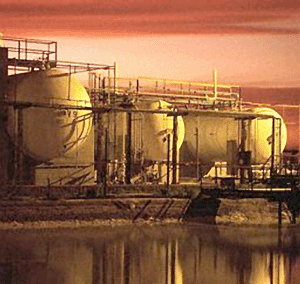Hydrostatic Testing
 Regenerative turbine pumps play a crucial role in hydrostatic testing procedures due to their unique characteristics and capabilities. Hydrostatic testing is a method used to verify the integrity of pressure vessels, pipelines, and other fluid-carrying systems by subjecting them to high-pressure conditions. MTH's regenerative turbine pumps are particularly well-suited for this task for several reasons.
Regenerative turbine pumps play a crucial role in hydrostatic testing procedures due to their unique characteristics and capabilities. Hydrostatic testing is a method used to verify the integrity of pressure vessels, pipelines, and other fluid-carrying systems by subjecting them to high-pressure conditions. MTH's regenerative turbine pumps are particularly well-suited for this task for several reasons.
-
High-Pressure Generation: Regenerative turbine pumps excel at generating and maintaining high pressures, making them ideal for hydrostatic testing requirements. They can efficiently build and sustain pressures exceeding 1000 psi at specified test points, providing a reliable source of high-pressure fluid.
-
Pressure Holding Capacity: In hydrostatic testing, it is essential to maintain the desired test pressure for a specified period to check for any leaks or weaknesses in the system. Regenerative turbine pumps have the capacity to hold pressure levels steadily, ensuring the test conditions remain consistent during the evaluation process. This characteristic is crucial for accurate and dependable testing results.
-
Efficient Low-Flow Operation: One of the key advantages of regenerative turbine pumps in hydrostatic testing is their ability to function effectively with low flow rates. Unlike some other pump types that require a significant flow of fluid, regenerative turbines can operate efficiently even with minimal flow. This is advantageous because hydrostatic testing typically involves slowly pressurizing a system while monitoring for any pressure drops, making regenerative turbines a more cost-effective choice.
-
Compact Design: Regenerative turbine pumps have a compact design, which is advantageous in situations where space is limited. Compared to multistage centrifugal pumps, they require far fewer stages to achieve the desired pressure levels. This means they occupy less space, making them a practical choice for hydrostatic testing setups, especially in confined or crowded industrial environments.
-
Cost-Effective Solution: The efficiency, reliability, and reduced space requirements of regenerative turbine pumps make them a cost-effective option for hydrostatic testing. With fewer stages and lower power consumption, they can deliver the necessary pressure without the added expenses associated with more complex pump systems.
To select the right regenerative turbine pump for a specific hydrostatic testing application, customers can explore the range of products offered by MTH. MTH provides both single-stage T Series pumps and multistage M Series pumps, allowing users to choose the most suitable pump based on their desired testing pressure range. This flexibility ensures that the specific needs of various testing scenarios can be met efficiently and effectively.
In summary, regenerative turbine pumps are a reliable, cost-effective, and efficient choice for hydrostatic testing. Their capacity to generate and hold high pressures, ability to operate at low flow rates, compact design, and cost-efficiency make them an ideal solution for ensuring the integrity of pressure vessels, pipelines, and other fluid-carrying systems in a wide range of industrial applications.

